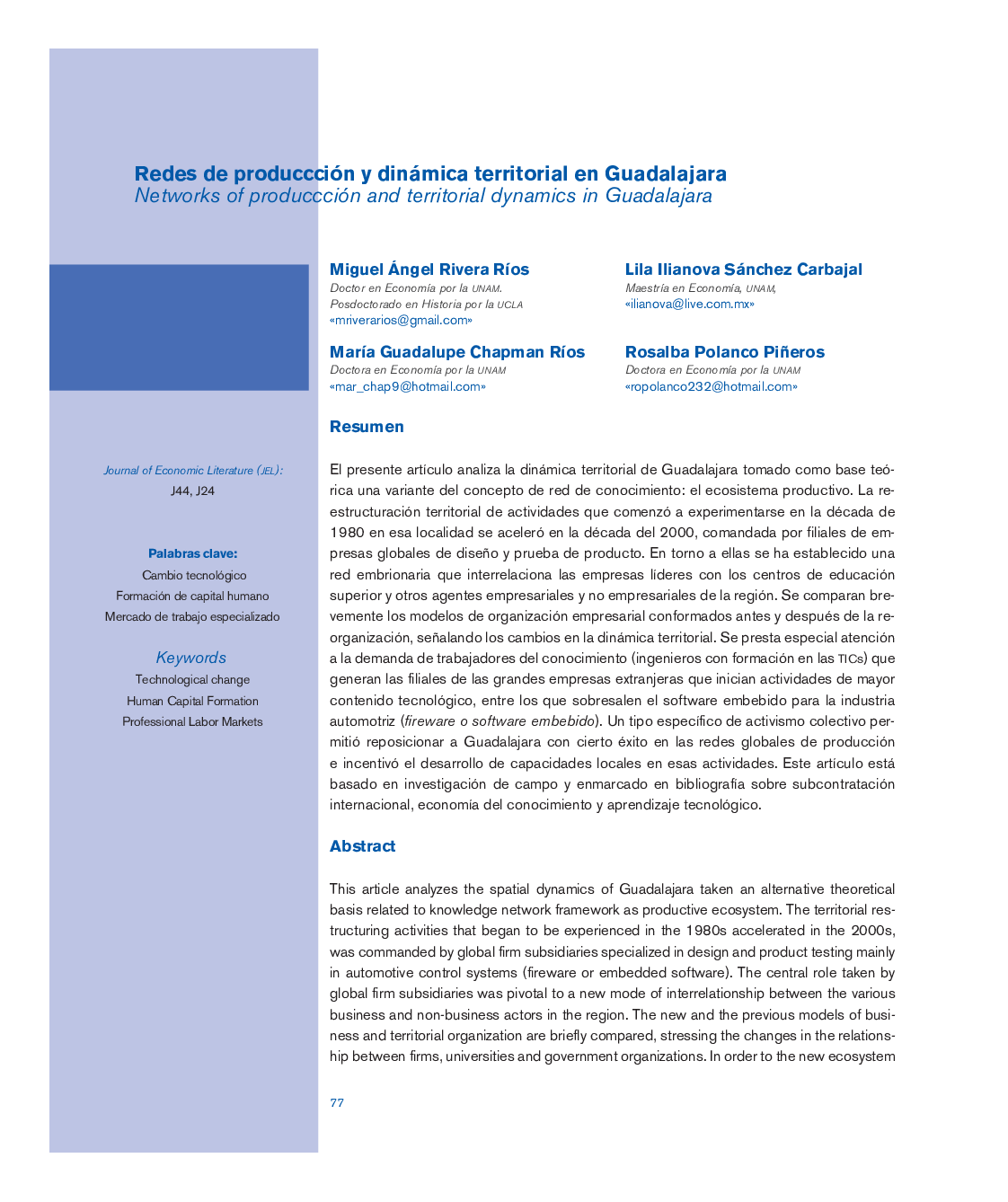| Article ID | Journal | Published Year | Pages | File Type |
|---|---|---|---|---|
| 7346198 | Economía UNAM | 2014 | 25 Pages |
Abstract
This article analyzes the spatial dynamics of Guadalajara taken an alternative theoretical basis related to knowledge network framework as productive ecosystem. The territorial restructuring activities that began to be experienced in the 1980s accelerated in the 2000s, was commanded by global firm subsidiaries specialized in design and product testing mainly in automotive control systems (fireware or embedded software). The central role taken by global firm subsidiaries was pivotal to a new mode of interrelationship between the various business and non-business actors in the region. The new and the previous models of business and territorial organization are briefly compared, stressing the changes in the relationship between firms, universities and government organizations. In order to the new ecosystem to perform its role in essential to satisfy the demand of knowledge workers (engineers on ict) which in turn depends on role plays by universities and the interaction between them and the leading firms. The collective action coming from local and foreigners entrepreneurs supported by the local government, prepared the ground for this process to operate and created several spillovers. The article is based on field research and framed in the literature on international outsourcing, knowledge economy and technological learning.
Related Topics
Social Sciences and Humanities
Economics, Econometrics and Finance
Economics and Econometrics
Authors
Miguel Ángel Rivera RÃos, MarÃa Guadalupe Chapman RÃos, Lila Ilianova Sánchez Carbajal, Rosalba Polanco Piñeros,
